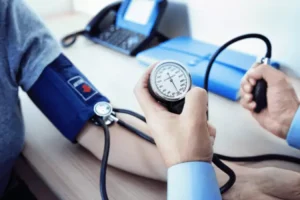Alcohol Addiction: Signs, Complications, and Recovery

And these communities make the person with an alcohol addiction accountable and provide a place to turn to if there is a relapse. Psychotherapy, usually cognitive behavioral therapy, is an important part of an alcoholism treatment program. This addresses the powerful psychological dependency a person has https://ecosoberhouse.com/ on alcohol. A qualified therapist will work with individuals on a one-to-one and group basis; teaching them how to change their alcohol-seeking behaviors. The therapist will concentrate on treating them new coping skills, meaning they will be better equipped to deal with life stresses and problems.
Identifying Relapse Triggers

Other programs may offer specialized tracks for specific populations, such as members of the LGBTQ+ community, men- or women-only groups, and veterans. Nevertheless, alcohol abuse can result in severe risks to physical and mental health, and to the individual’s relationships, responsibilities, and other pursuits. As described by the West Virginia University School of Public Health, even in the short-term, alcohol use has a high risk of injury and other dangers. Finally, if you’ve tried self-help strategies and find yourself not able to fully quit drinking, it may be time to seek professional help.
Types of Treatment
Some people drink heavily all day, while others binge drink and then stay sober for a while. Contact your primary care provider, health insurance plan, local health department, or employee assistance program for information about specialty treatment. Just like any other medical condition, people with substance use disorders deserve to have a range of treatment options available to them. Scientists are working to develop a larger menu of pharmaceutical treatments that could be tailored to individual needs.
Groups for Family and Friends
- For more information on a return to drinking, see An Ongoing Process.
- Regardless of the type of support system, it’s helpful to get involved in at least one when getting sober.
- There’s no one-size-fits-all approach to stopping alcohol use and treating alcohol misuse, but no matter how severe the issue may seem, recovery is possible for every person.
- Personal stories abound of people never touching alcohol again after going to AA or receiving certain treatments.
- Alcohol use disorder includes a level of drinking that’s sometimes called alcoholism.
Personal stories abound of people never touching alcohol again after going to AA or receiving certain treatments. For some, alcoholism can be overcome, although whether it is cured is debatable. The other issue is that those who drink a lot are not necessarily alcoholics, so they may not undergo alcohol withdrawal. In addition, some people may not experience severe cravings and so on. “Alcohol misuse,” “someone with an alcohol use disorder,” and “rhinophyma” are more current and less stigmatizing terms. Alcohol use disorder is a pattern of alcohol use that involves problems controlling your drinking, being preoccupied with alcohol or continuing to use alcohol even when it causes problems.

An Ongoing Process
If a person is worried someone they care about has AUD, they should consider the following steps. The key difference between AUD and these behaviors is that AUD is an addiction. This means someone with AUD is mentally and physically dependent on alcohol. As with any addiction, there is a need to treat AUD as a serious health condition. This is available from a range of support groups and professional services. According to the number of criteria a person meets, doctors diagnose AUD as mild, moderate, or severe.
It’s often a reality that grows more concerning with every downed glass. Studies show that the risk of a situation turning violent is five times higher when alcohol enters the mix. It’s a routine you’ve witnessed repeatedly — and it never gets less painful to watch. Addiction psychiatrist Akhil Anand, MD, offers these tips to help you persevere.

Some people may think the only way to deal with it is with willpower, as if it’s a problem they have to work through all on their own. American Addiction Centers (AAC) is committed to delivering original, truthful, accurate, unbiased, and medically current information. We strive to create content that is clear, concise, can alcoholism be cured and easy to understand. Often this is by a concerned partner or friend, and sometimes it’s by someone who suffers from the disease. Like many diseases, however, the answer lies between yes and no. Talking to an addiction counselor can help you better understand the situation and work through your feelings.
How Long Does it Take to Feel the Effects of Not Drinking?
Be wary of anyone that advises an at-home detox from alcohol with herbal remedies or magic pills. Detoxing from alcohol is not only uncomfortable but can also be deadly. Group therapy, led by a therapist, can give you the benefits of therapy along with the support of other members. While we are unable to respond to your feedback directly, we’ll use this information to improve our online help.

Severity is based on the number of criteria a person meets based on their symptoms—mild (2–3 criteria), moderate (4–5 criteria), or severe (6 or more criteria). Treatment for AUD may be lifelong and include counseling, support groups, residential programs, and medications. As a loved one of someone with an alcohol addiction, try to be encouraging and provide emotional support. Therapy is useful to help teach someone how to manage the stress of recovery and the skills needed to prevent a relapse. Also, a healthy diet can help undo damage alcohol may have done to the person’s health, like weight gain or loss.
- The other issue is that those who drink a lot are not necessarily alcoholics, so they may not undergo alcohol withdrawal.
- There’s no shame in having the urge to relapse, but telling someone sooner rather than later will allow them to get you the help you need.
- It may help to seek support from others, including friends, family, community, and support groups.
- Ideally, health care providers will one day be able to identify which AUD treatment is most effective for each person.
- While we are unable to respond to your feedback directly, we’ll use this information to improve our online help.
Genetics may make some individuals more susceptible, but a person’s environment plays an important part. Alcoholism, now known as alcohol use disorder, is a condition in which a person has a desire or physical need to consume alcohol. Treatment can include counseling, medications, residential programs, and support groups. Regardless of how the addiction looks, someone typically has an alcohol addiction if they heavily rely on drinking and can’t stay sober for an extended period of time. When you or your loved one completes an inpatient or outpatient alcohol treatment program, this is a time for celebration. If you have any of these symptoms, alcohol may already be a cause for concern.
